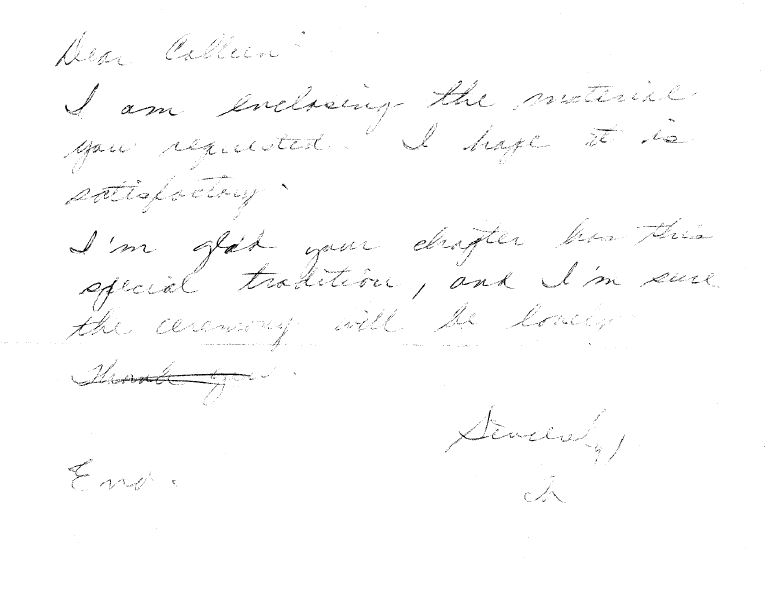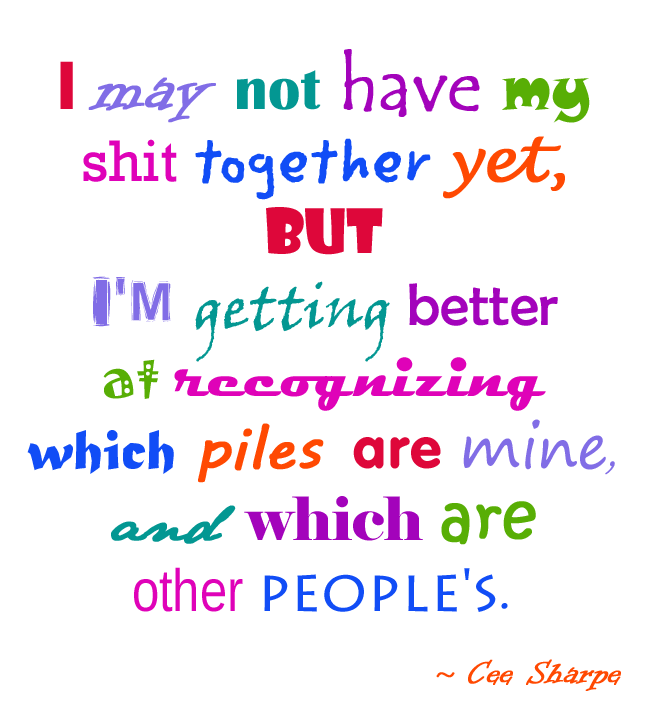Notes from here: 20 Diversion Tactics Highly Manipulative Narcissists, Sociopaths And Psychopaths Use To Silence You
Toxic people… engage in maladaptive behaviors in relationships that ultimately exploit, demean and hurt their intimate partners, family members and friends.
1. Gaslighting
a manipulative tactic that can be described in different variations of three words: “That didn’t happen,” “You imagined it,” and “Are you crazy?”
2. Projection
One sure sign of toxicity is when a person is chronically unwilling to see his or her own shortcomings and uses everything in their power to avoid being held accountable for them. This is known as projection. Projection is a defense mechanism used to displace responsibility of one’s negative behavior and traits by attributing them to someone else. It ultimately acts as a digression that avoids ownership and accountability.
Instead of admitting that self-improvement may be in order, they would prefer that their victims take responsibility for their behavior and feel ashamed of themselves. This is a way for a narcissist to project any toxic shame they have about themselves onto another.
Narcissistic abusers love to play the “blameshifting game.” Objectives of the game: they win, you lose, and you or the world at large is blamed for everything that’s wrong with them.
Narcissists on the extreme end of the spectrum usually have no interest in self-insight or change. It’s important to cut ties and end interactions with toxic people as soon as possible so you can get centered in your own reality and validate your own identity.
3. Nonsensical conversations from hell
Malignant narcissists and sociopaths use word salad, circular conversations, ad hominem arguments, projection and gaslighting to disorient you and get you off track should you ever disagree with them or challenge them in any way… In their eyes, you are the problem if you happen to exist…now your entire childhood, family, friends, career and lifestyle choices have come under attack. That is because your disagreement picked at their false belief that they are omnipotent and omniscient, resulting in a narcissistic injury.
4. Blanket statements and generalizations
…they generalize anything and everything you say, making blanket statements that don’t acknowledge the nuances in your argument or take into account the multiple perspectives you’ve paid homage to. Better yet, why not put a label on you that dismisses your perspective altogether?
…invalidate experiences that don’t fit in the unsupported assumptions [and familial beliefs] … they are also used to maintain the status quo.
…“You’re always too sensitive” rather than addressing the real issues at hand. It’s possible that you are oversensitive at times, but it is also possible that the abuser is also insensitive and cruel the majority of the time.
5. Deliberately misrepresenting your thoughts and feelings to the point of absurdity
…your differing opinions, legitimate emotions and lived experiences get translated into character flaws and evidence of your irrationality… Narcissists weave tall tales to reframe what you’re actually saying [or what you actually did] as a way to make your opinions [or you] look absurd or heinous…This enables them to invalidate your right to have thoughts and emotions about their inappropriate behavior…
This is also a popular form of diversion and cognitive distortion that is known as “mind reading.” Toxic people… chronically jump to conclusions based on their own triggers rather than stepping back to evaluate the situation mindfully. They act accordingly based on their own delusions and fallacies and make no apologies for the harm they cause as a result. Notorious for putting words in your mouth, they depict you as having an intention or outlandish viewpoint you didn’t possess…they have succeeded in convincing you that you should be “shamed” for giving them any sort of realistic feedback.
6. Nitpicking and moving the goal posts
The difference between constructive criticism and destructive criticism is the presence of a personal attack and impossible standards… they just want to nitpick, pull you down and scapegoat you in any way they can. Abusive narcissists and sociopaths employ a logical fallacy known as “moving the goalposts” in order to ensure that they have every reason to be perpetually dissatisfied with you. This is when, even after you’ve provided all the evidence in the world to validate your argument or taken an action to meet their request, they set up another expectation of you or demand more proof [or just declare that you’re still wrong].
…able to instill in you a pervasive sense of unworthiness and of never feeling quite “enough.”…they aren’t acknowledging the work you’ve done to validate your point or satisfy them, their motive isn’t to better understand. It’s to further provoke you into feeling as if you have to constantly prove yourself.
7. Changing the subject to evade accountability
It is a literal digression from the actual topic that works to redirect attention to a different issue altogether [which is always The Divorce]… they will reroute discussions to benefit them… This type of diversion has no limits in terms of time or subject content, and often begins with a sentence like “What about the time when…”
On a macro level, these diversions work to derail discussions that challenge the status quo [the beliefs that Dad was a bastard and Mom was a saint].
8. Covert and overt threats
…instill fear in you about the consequences of disagreeing or complying with their demands… If someone’s reaction to you… having a differing opinion from your own is to threaten you into submission… this is a red flag of someone who has a high degree of entitlement and has no plans of compromising. We can never have the reunion anywhere else but on my sister’s turf. Deciding not to come is met with hysteria. No one can call Susan or Joe on the carpet because there is some unstated threat there.
9. Name-calling
Narcissists preemptively blow anything they perceive as a threat to their superiority out of proportion. In their world, only they can ever be right and anyone who dares to say otherwise creates a narcissistic injury that results in narcissistic rage.
…A well-researched perspective or informed opinion suddenly becomes “silly” or “idiotic” in the hands of a malignant narcissist or sociopath who feels threatened by it and cannot make a respectful, convincing rebuttal. Rather than target your argument, they target you as a person and seek to undermine your credibility and intelligence in any way they possibly can… realize that they are resorting to name-calling because they are deficient in higher level methods.
10. Destructive conditioning
Toxic people condition you to associate your strengths, talents, and happy memories with abuse, frustration and disrespect. They do this by sneaking in covert and overt put-downs about the qualities and traits they once idealized as well as… sabotaging your goals, ruining celebrations, vacations and holidays. They may even isolate you from your… family…
[Mom telling me repeatedly that people weren’t going to like me because of all my positive qualities. Susan sabotaging the meal-planning. Everyone else being free to talk about how awful Dad was at any family get-together.]
11. Smear campaigns and stalking
…they start to control how others see you; they play the martyr while you’re labeled the toxic one. A smear campaign is a preemptive strike… so that you won’t have a support network to fall back on…
A victim… often doesn’t know what’s being said about them during the relationship, but they eventually find out the falsehoods…
Toxic people will gossip behind your back (and in front of your face), slander you to your loved ones or their loved ones, create stories that depict you as the aggressor while they play the victim, and claim that you engaged in the same behaviors that they are afraid you will accuse them of engaging in.
12. Love-bombing and devaluation
…the saccharine sweetness a narcissist subjects you to…
13. Preemptive defense
…a high level of sympathy and empathy at the beginning of your relationship to dupe you… Genuinely nice people rarely have to persistently show off their positive qualities…
14. Triangulation
Bringing in the opinion, perspective or suggested threat of another person into the dynamic of an interaction is known as “triangulation.” Often used to validate the toxic person’s abuse while invalidating the victim’s reactions to abuse… They also use the opinions of others to validate their point of view… Everyone is essentially being played by this one person. Susan using Joe to support her view of things. Mom using my sister for the same purpose.
15. Bait and feign innocence
Baiting you into a mindless, chaotic argument [like the one over turning off the oven] … it becomes clear that the person has a malicious motive of tearing you down [more like making sure I was the one seen as being at fault].
16. Boundary testing and hoovering
…The more violations they’re able to commit without consequences, the more they’ll push the envelope… [my brother refusing to respect my wish for no contact]
17. Aggressive jabs disguised as jokes
Covert narcissists enjoy making malicious remarks at your expense. These are usually dressed up as “just jokes” so that they can get away with saying appalling things… a way to divert from their cruelty and onto your perceived sensitivity.
18. Condescending sarcasm and patronizing tone
So long as you’re treated like a child and constantly challenged for expressing yourself, you’ll start to develop a sense of hypervigilance about voicing your thoughts and opinions without reprimand… you begin to silence yourself. [This is less about sarcasm and more about simply not being able to express an opinion that goes against the grain, such as not agreeing that Mom was wonderful and Dad was shit, or being atheist or progressive.]
19. Shaming
…It can also be used to destroy and whittle away at a victim’s self-esteem: if a victim dares to be proud of something, shaming the victim for that specific trait, quality or accomplishment can serve to diminish their sense of self and stifle any pride they may have. [Back to mom telling me people weren’t going to like me]
20. Control
…manufacture situations or conflict out of thin air… engage in disagreements about irrelevant things and rage over perceived slights.








